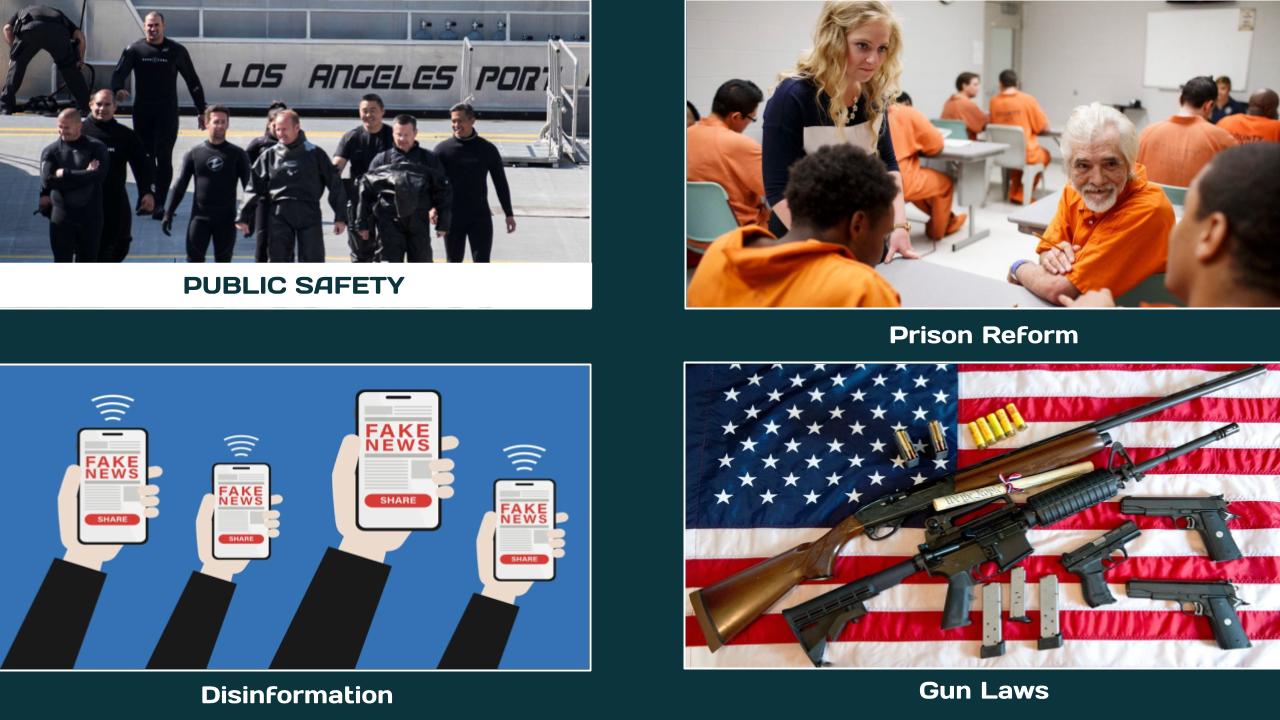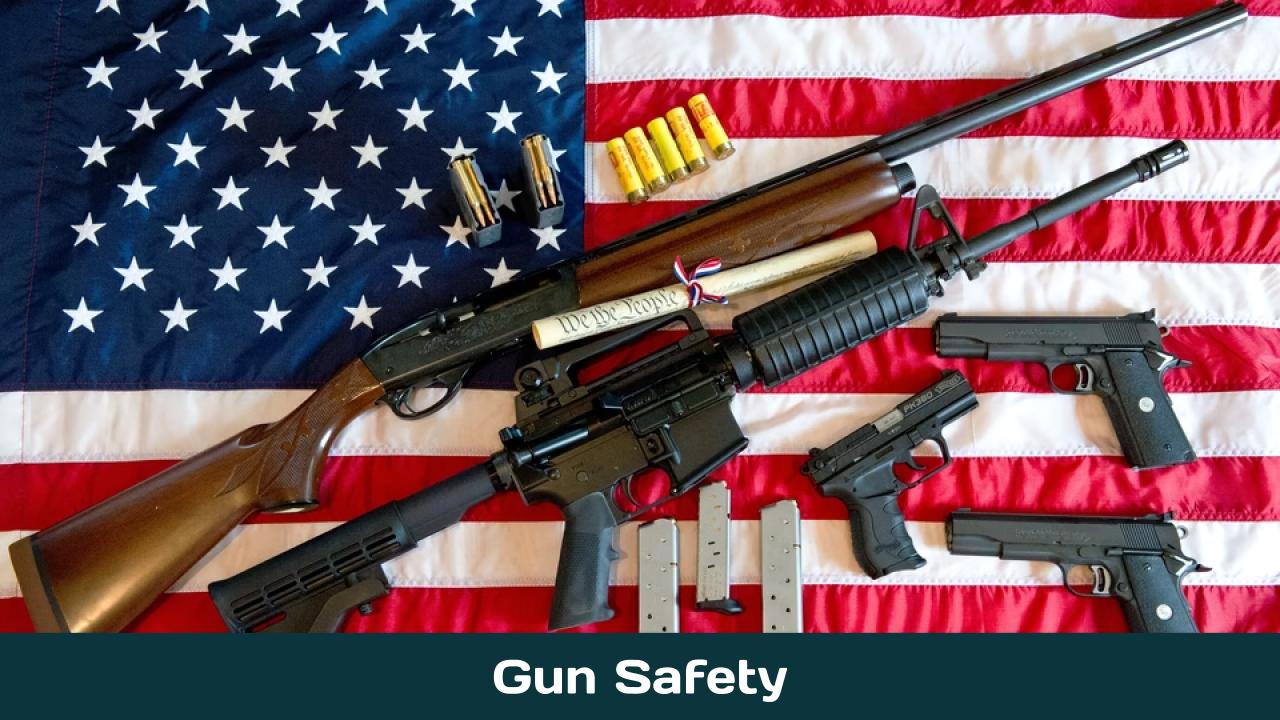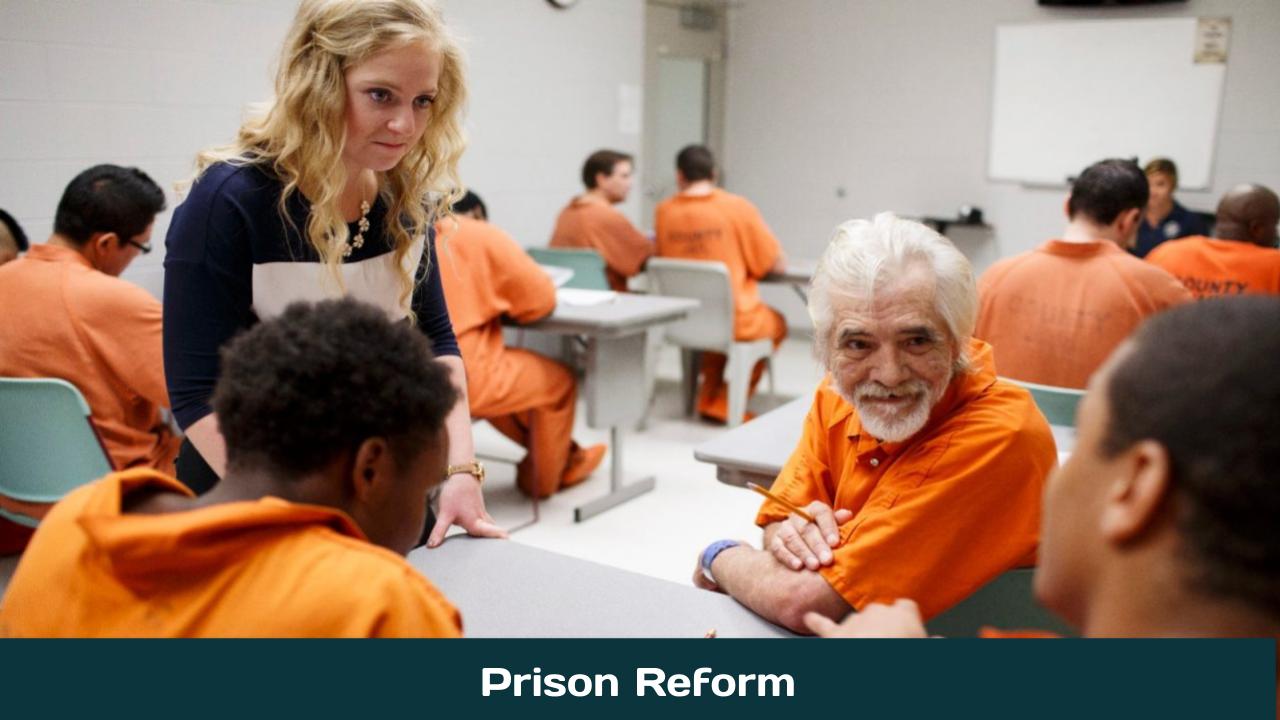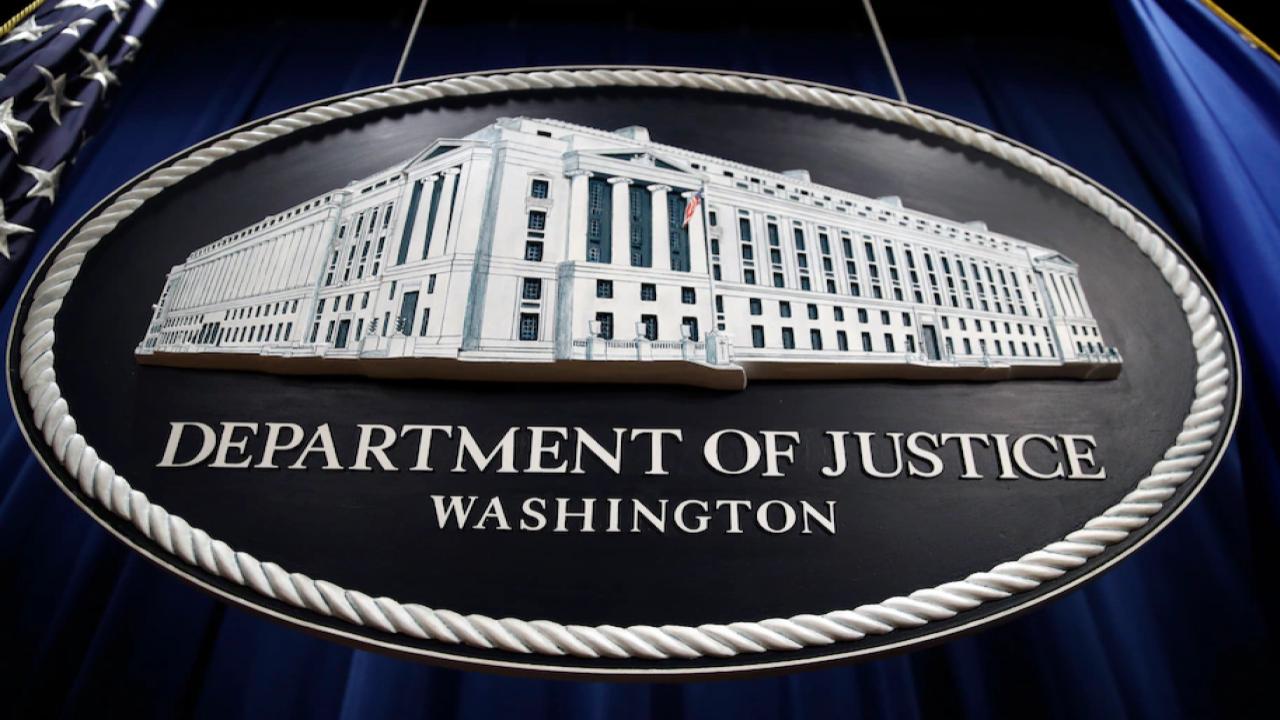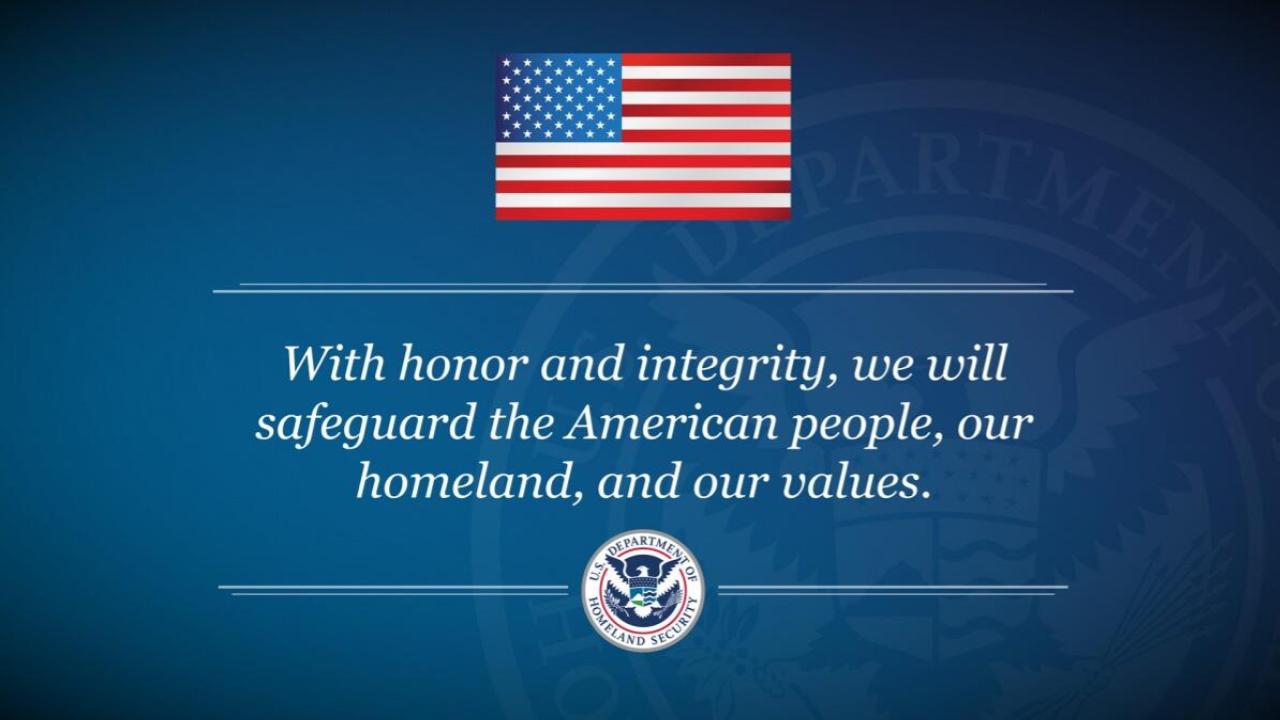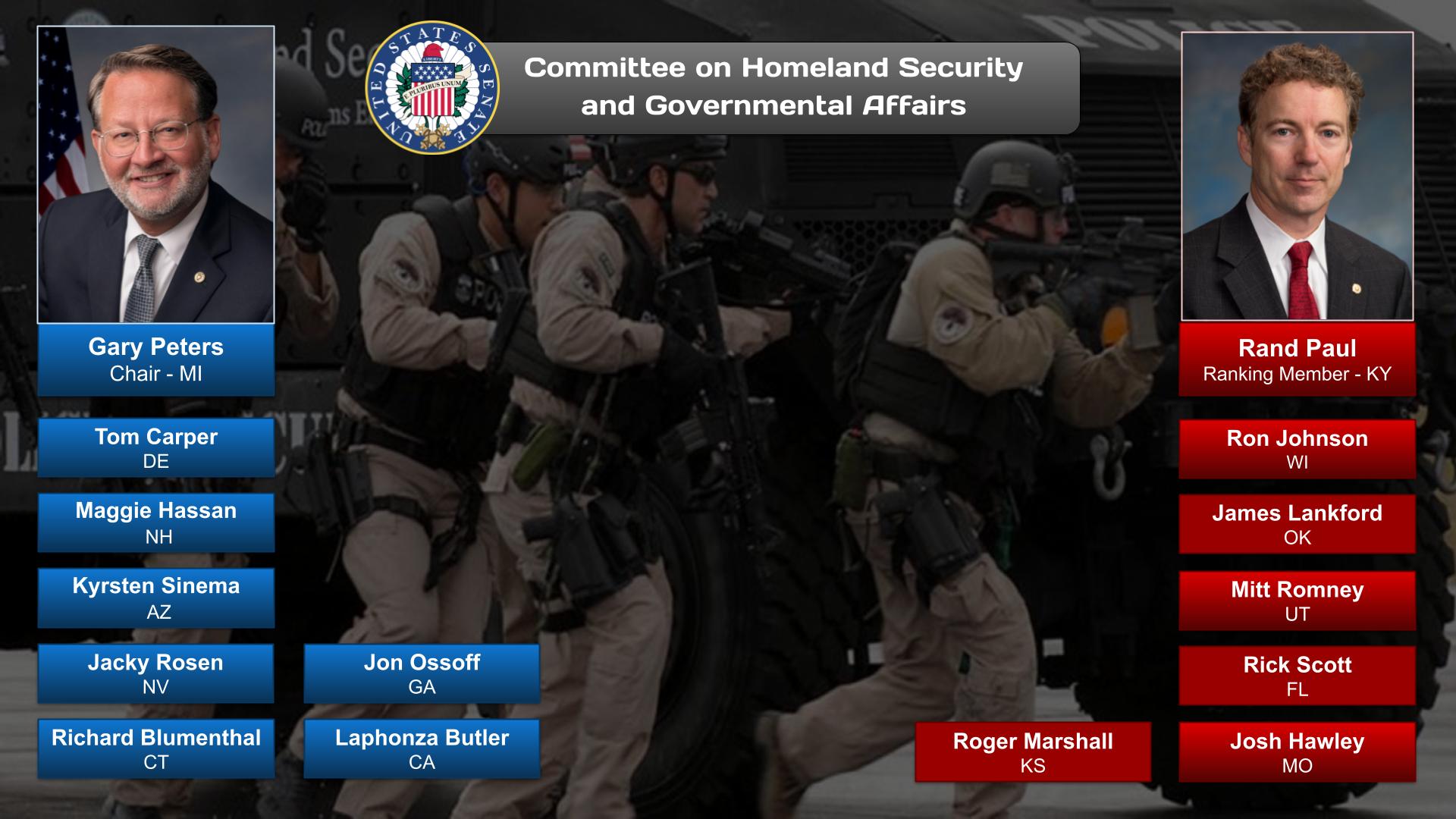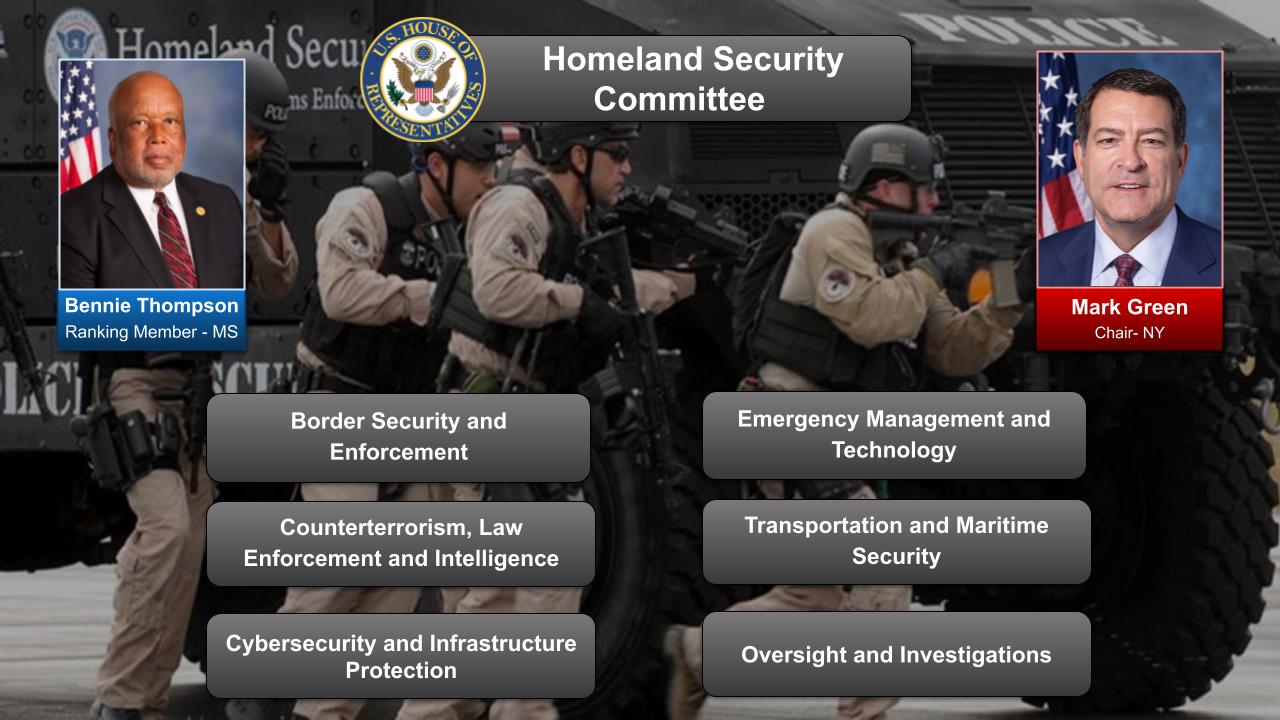Summary
There are many issues related to Public Safety that Congress is looking to address with legislation.
We have identified three issues for particular focus: Gun Laws, Social Media, Prison Reform. This post summarizes the key challenges and solutions around Public Safety and the ways Congress and the government are addressing them Go to the posts on each issue to learn more about each issue and how Congress is addressing the problems.
In the Discussion section of this post, you can ask our curators questions, make suggestions, and discuss other issues related to Public Safety not being addressed in the three focused issues.
TEDx Talks – 15/05/2019 (18:15)
Troy Riggs talks about his experience with public safety, and ways that the major cities within the United States of America can improve their public safety efforts.
OnAir Post: Public Safety
News
PBS NewsHour – April 17, 2024 (05:00)
Boeing has faced intense scrutiny for months and new whistleblower claims were the focus of a congressional hearing. Aviation correspondent Miles O’Brien reports.
Arlington’s public safety drones are ready to fly, the county announced this morning.
The drones “are an additional tool for first responders and provide enhanced operational capability, safety, and situational awareness in support of public safety,” the county said.
Members of the police department, fire department, Sheriff’s Office and emergency management department have been trained on use of the miniature aircraft.
About
Overview
Crime:
- Violent crimes, including murder, robbery, and aggravated assault
- Property crimes, such as burglary, theft, and vandalism
- Drug-related crimes
- Domestic violence
- Cybercrime
Natural Disasters:
- Hurricanes, tornadoes, floods, and earthquakes
- Wildfires
- Active shooter incidents
- Terrorist attacks
Public Health Emergencies:
- Pandemics, such as COVID-19
- Mass casualties from accidents or natural disasters
- Mental health crises
- Substance abuse disorders
Transportation Safety:
- Traffic accidents and fatalities
- Aviation incidents
- Maritime accidents
- Public transportation safety
School and Campus Safety:
- School shootings and violence
- Bullying and harassment
- Student mental health issues
Homeland Security:
- Border security and illegal immigration
- Terrorism
- Cybersecurity and foreign interference
Other Issues:
- Police brutality and misconduct
- Mass incarceration
- Racial profiling
- Community-police relations
- Missing persons
- Human trafficking
Source: Google Search + Gemini + onAir curation
Party positions
Republican Party platform: In 2020, the Republican Party decided not to write a platform for that presidential election cycle, instead simply expressing its support for Donald Trump’s agenda.
- Go here to see a PDF on 2016 Republican Platform.
- Go to this Wikipedia entry to read “Political positions of Donald Trump”.
Democratic Party platform:
- Go here to read the Democratic Party’s plaform on the DNC’s website.
- Go to this Wikipedia entry to read the”Political positions of the Democratic Party”
Democratic Party
- Increased funding for police training and community policing: Democrats believe that investing in training and community policing programs can help reduce crime and build trust between law enforcement and the communities they serve.
- Ban on assault weapons and high-capacity magazines: Democrats support a ban on the sale of assault weapons and high-capacity magazines, which they believe are used in a disproportionate number of mass shootings.
- Universal background checks: Democrats believe that all gun sales should be subject to a background check, regardless of whether the sale is taking place through a licensed dealer or a private seller.
- Red flag laws: Democrats support laws that allow law enforcement to temporarily remove firearms from individuals who are deemed to be a danger to themselves or others.
- Increased funding for mental health services: Democrats believe that investing in mental health services can help prevent mass shootings and other violent crimes.
Republican Party
- Support for the Second Amendment: Republicans believe that the Second Amendment guarantees the right of individuals to keep and bear arms, and they oppose any laws that would infringe on this right.
- Increased funding for law enforcement: Republicans believe that increasing funding for law enforcement will help reduce crime and make communities safer.
- Opposition to gun control: Republicans generally oppose gun control measures, such as bans on assault weapons and high-capacity magazines, universal background checks, and red flag laws.
- Support for the death penalty: Republicans generally support the death penalty for certain crimes, such as murder and terrorism.
- Opposition to defunding the police: Republicans oppose calls to defund the police, and they believe that law enforcement is essential to public safety.
Independent/Third Party Positions
- Support for gun safety measures: Independent and third-party candidates often support gun safety measures, such as universal background checks and bans on assault weapons and high-capacity magazines.
- Emphasis on community policing: Independent and third-party candidates often emphasize the importance of community policing and building trust between law enforcement and the communities they serve.
- Support for mental health services: Independent and third-party candidates often support increased funding for mental health services, which they believe can help prevent mass shootings and other violent crimes.
- Opposition to mass incarceration: Independent and third-party candidates often oppose mass incarceration and support reforms to the criminal justice system.
Source: Google Search + Gemini + onAir curation
Websites
Government Agencies:
- Department of Homeland Security (DHS): https://www.dhs.gov/
- Federal Emergency Management Agency (FEMA): https://www.fema.gov/
- Federal Bureau of Investigation (FBI): https://www.fbi.gov/
- Department of Justice (DOJ): https://www.justice.gov/opa
- National Institute of Justice (NIJ): https://www.nij.gov/
Nonprofit Organizations:
- National Council for Home Safety and Security (NCHSS): https://www.nchss.org/
- International Association of Chiefs of Police (IACP): https://www.theiacp.org/
- National Sheriffs’ Association (NSA): https://www.sheriffs.org/
- National Association of Fire Investigators (NAFI): https://www.nafi.org/
- National Crime Prevention Council (NCPC): https://www.ncpc.org/
Industry Associations:
- Public Safety Network (PSN): https://www.publicsafetynetwork.org/
- Association of Public-Safety Communications Officials (APCO): https://www.apcointl.org/
- National Association of Emergency Medical Services Physicians (NAEMSP): https://www.naemsp.org/
- American Red Cross: https://www.redcross.org/
Other Resources:
- National Missing and Unidentified Persons System (NamUs): https://www.namus.gov/
- Emergency Management Institute (EMI): https://training.fema.gov/
- National Public Warning System (NPWS): https://www.npws.org/
- Safewise Public Safety Index: https://www.safewise.com/3898/public-safety-index/
- Crime Statistics for All US Cities: https://www.areavibes.com/best-places/crime
Source: Google Search + Gemini + onAir curation
Web Links
DEPARTMENT & AGENCIES
Departments
Source: Google Search + Gemini + onAir curation
- Department of Justice (DOJ): Oversees federal law enforcement, prosecutes crimes, and provides funding for state and local law enforcement agencies.
- Department of Homeland Security (DHS): Responsible for protecting the United States from terrorist attacks and other threats, including cybersecurity, border security, and immigration enforcement.
- Federal Bureau of Investigation (FBI): Investigates federal crimes, including terrorism, organized crime, and cybercrime.
- Drug Enforcement Administration (DEA): Enforces drug laws and investigates drug trafficking.
- Bureau of Alcohol, Tobacco, Firearms and Explosives (ATF): Enforces laws related to alcohol, tobacco, firearms, and explosives.
- Federal Emergency Management Agency (FEMA): Provides disaster relief and assistance to state and local governments.
- National Institute of Justice (NIJ): Supports research and development in criminal justice and public safety.
- Office of Justice Programs (OJP): Provides funding and technical assistance to state and local law enforcement agencies.
- Department of Education (ED): Supports programs and initiatives that promote school safety and reduce youth violence.
- Department of Health and Human Services (HHS): Provides funding and technical assistance to state and local agencies that provide mental health and substance abuse services.
- Department of Housing and Urban Development (HUD): Provides funding and technical assistance to state and local agencies that provide housing and community development services, which can help to reduce crime and promote public safety.
Agencies
Source: Google Search + Gemini + onAir curation
Federal Agencies:
- Department of Homeland Security (DHS): Oversees federal public safety efforts, including border security, terrorism prevention, and emergency management.
- Federal Bureau of Investigation (FBI): Investigates federal crimes, including terrorism, cybercrime, and organized crime.
- Department of Justice (DOJ): Enforces federal laws, including public safety statutes, and provides funding for law enforcement agencies.
- Drug Enforcement Administration (DEA): Enforces drug laws and combats drug trafficking.
- Bureau of Alcohol, Tobacco, Firearms and Explosives (ATF): Enforces federal firearms and explosives laws.
- Transportation Security Administration (TSA): Protects transportation systems, including airports and mass transit.
- Environmental Protection Agency (EPA): Protects human health and the environment, including regulating hazardous substances and hazardous waste.
State and Local Agencies:
- Police Departments: Provide local law enforcement services, such as responding to emergencies, investigating crimes, and maintaining order.
- Sheriff’s Offices: Provide law enforcement services in rural areas and are typically responsible for county jails.
- Fire Departments: Provide firefighting and emergency medical services.
- Emergency Management Agencies: Coordinate emergency response and recovery efforts, such as hurricanes, floods, and earthquakes.
- Public Health Departments: Protect and promote public health, including managing infectious diseases, ensuring food safety, and conducting environmental health inspections.
- Office of Homeland Security and Emergency Preparedness (OHSEP): State-level agencies responsible for coordinating public safety efforts, including emergency management and homeland security.
Other Agencies:
- National Institute of Justice (NIJ): A research agency within the Department of Justice that supports research on crime prevention and criminal justice.
- National Sheriff’s Association (NSA): A membership organization representing sheriffs and other law enforcement executives.
- International Association of Chiefs of Police (IACP): A membership organization representing police chiefs and other law enforcement leaders.
Committees & Caucuses
Committees
Source: Google Search + Gemini + onAir curation
House of Representatives:
- Committee on the Judiciary:
- Subcommittee on Crime, Terrorism, and Homeland Security
- Committee on Homeland Security:
- Subcommittee on Emergency Preparedness, Response, and Recovery
- Subcommittee on Transportation Security and Infrastructure Protection
- Committee on Energy and Commerce:
- Subcommittee on Health
Senate:
- Committee on the Judiciary:
- Subcommittee on Crime and Drugs
- Subcommittee on Homeland Security and Governmental Affairs
- Committee on Homeland Security and Governmental Affairs:
- Subcommittee on Disaster Recovery and Emergency Management
- Subcommittee on Emerging Threats and Border Security
- Committee on Commerce, Science, and Transportation:
- Subcommittee on Aviation Operations, Safety, and Security
- Subcommittee on Emergency Preparedness and Cybersecurity
Joint Committees (Both House and Senate):
- Joint Committee on Homeland Security
Caucuses
Source: Google Search + Gemini + onAir curation
Caucuses Focused on Law Enforcement
- Law Enforcement Congressional Caucus: Supports law enforcement and promotes legislation to enhance officer safety, training, and morale.
- Congressional Bipartisan Task Force to End Sexual Assault and Domestic Violence: Addresses issues of sexual assault and domestic violence, including providing resources to law enforcement and advocating for victims’ rights.
- Congressional Caucus on Missing and Exploited Children: Works to combat child trafficking and exploitation, supports law enforcement efforts, and provides funding for prevention programs.
Caucuses Focused on Firefighting and Emergency Management
- Congressional Fire Services Caucus: Represents the interests of firefighters and promotes legislation to improve their safety, training, and equipment.
- Congressional Emergency Management Caucus: Addresses issues related to emergency preparedness, disaster response, and recovery, advocating for funding and policy changes.
- Wildfire Caucus: Focuses on wildfire prevention, mitigation, and response, supporting legislation to improve coordination and funding for these efforts.
Caucuses Focused on Homeland Security
- Homeland Security Congressional Caucus: Monitors and responds to threats to the homeland, promotes collaboration between law enforcement, intelligence, and emergency management agencies.
- Cyberspace Solarium Commission Caucus: Examines cybersecurity threats and develops solutions, advocating for increased funding and cooperation between public and private sectors.
- Global Health Security Caucus: Addresses global health threats, including pandemic preparedness and response, supporting legislation to strengthen international collaboration.
Caucuses Focused on Public Safety Infrastructure
- Congressional Air Transportation Caucus: Advocates for improvements to aviation infrastructure, including funding for airports and air traffic control systems.
- Congressional Railway Caucus: Represents the interests of the rail industry, promoting safety improvements and advocating for funding for infrastructure projects.
- Coastal Communities Caucus: Addresses issues affecting coastal communities, including disaster preparedness, infrastructure resilience, and environmental protection.
Multi-Issue Caucuses
- Congressional Problem Solvers Caucus: A bipartisan group dedicated to finding common ground on important issues, including public safety-related matters.
- Congressional Progressive Caucus: Supports progressive policies, including criminal justice reform, gun violence prevention, and improving public safety for marginalized communities.
- Congressional Black Caucus: Represents the interests of African Americans, advocating for policies to address racial disparities in law enforcement and public safety.
More Information
Nonpartisan Organizations
Source: Google Search + Gemini + onAir curation
National Crime Prevention Council
- Focuses on preventing crime and promoting community safety through public education, research, and advocacy.
National Association of Town Watch
- Supports neighborhood watch programs and promotes crime prevention through community involvement.
National Crime Victims Research and Treatment Center
- Conducts research on the impact of crime on victims and provides support and resources for recovery.
Vera Institute of Justice
- Conducts research, provides training, and advocates for reforms in the criminal justice system.
Brennan Center for Justice
- Promotes democracy, safety, and equal justice through research, advocacy, and litigation.
Council on Criminal Justice
- Develops evidence-based policies and programs to improve the criminal justice system.
International Association of Chiefs of Police
- Represents and supports police chiefs in the United States and internationally.
National Organization of Black Law Enforcement Executives
- Advocates for the professional development and leadership of Black law enforcement officers.
The Police Foundation
- Conducts research and provides training to improve policing practices and enhance public safety.
Crime Prevention Research Center
- Conducts research on the prevention of crime and violence and provides training and technical assistance to practitioners.
Partisan Organizations
Source: Google Search + Gemini + onAir curation
Conservative
- National Rifle Association (NRA): Advocates for gun rights and opposes gun control measures.
- American Legislative Exchange Council (ALEC): A conservative think tank that drafts model legislation on various issues, including public safety.
- Heritage Foundation: A conservative think tank that promotes limited government and free markets, including in the area of public safety.
Liberal
- Brady Campaign to Prevent Gun Violence: Advocates for gun control measures and reduces gun violence.
- Everytown for Gun Safety: A gun control advocacy organization that supports measures such as background checks and assault weapon bans.
- Center for American Progress: A liberal think tank that supports progressive policies, including gun violence prevention.
“Public security” (wiki)
Contents

Public security or public safety is the prevention of and protection from events that could endanger the safety and security of the public from significant danger, injury, or property damage. It is often conducted by a state government to ensure the protection of citizens, persons in their territory, organizations, and institutions against threats to their well-being, survival, and prosperity.[1]
The public safety issues that a municipality, county, regional, or federal jurisdiction may handle include crimes (ranging from misdemeanors to felonies), structure fires, conflagrations, medical emergencies, mass-casualty incidents, disasters, terrorism, and other concerns.
Public safety organizations are organizations that conduct public safety. They generally consist of emergency services and first responders such as law enforcement, fire services, emergency medical services, security forces, and military forces. They are often operated by a government, though some private public safety organizations exist where possible.
Framework

Organized crime and international terrorism are hardly deterred by geographical, linguistic, or financial barriers. The latter has largely contributed to public security becoming an important political and economic issue, nationally as well as internationally. Politics, public organizations and businesses closely collaborate to guarantee public security and maintain a stable environment for economic prosperity.
Although public security significantly contributes to the attractiveness of a location, the productivity of its people, and hence the overall success of an economy, the sector frequently suffers from low budgets, limited resources, and inadequate information systems. Large events, pandemics, severe accidents, environmental disasters, and terrorist attacks pose additional threats to public security and order.
The police, federal police and border authorities nonetheless need to warrant the security of the country as a fundamental prerequisite for the domestic political ability to act. The quality and scope of potential threats have changed significantly, and the tasks and general framework for the police, federal police and border authorities have changed accordingly.
Public safety organizations
National
- Federal law enforcement agency
- Criminal investigation department
- Border patrol
- Gendarmerie
- Ministry or department of interior, justice, or public safety
Regional
- County police
- Sheriff or constable‘s office
- State trooper or provincial police
Local
- Police department or marshal
- Fire services
- Emergency medical services
- Local government
- Municipal public affairs office
Sub-sectors
Law enforcement
Intelligence and information sharing
Emergency
Justice
Interior
Organizations
See also
References
External links
 Media related to Public safety at Wikimedia Commons
Media related to Public safety at Wikimedia Commons- Murray N. Rothbard: The Public Sector, III: Police, Law, and the Courts aus For a New Liberty: The Libertarian Manifesto
